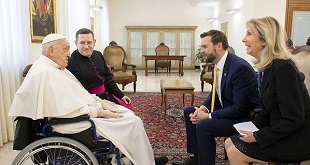
How the government is hindering them
Kampala, Uganda | PATRICIA AKANKWATSA | An unfavourable national legal policy framework and ignorance of the policy implementers are among issues stopping Ugandans from enjoying their digital rights.
Dorothy Mukasa; the Executive Director of Unwanted Witnesses, a civil organisation that defends and protects digital rights and online freedoms, said this while launching a report on ‘The state of digital rights and governance in Uganda’ on March 13 in Kampala. The report is published by Unwanted Witnesses Uganda.
She said the rationale for the research was to explore the loopholes within the national legal framework that are perpetrating surveillance, personal data and privacy intrusion, arrest, kidnaps, and online censorship that limits the development of good internet governance principles. She said human rights enjoyment should be benchmarked on international and regional legal standards.
Uganda’s internet usage has grown in recent years with over 10 million users, with social media penetration estimated at about 5.6% of the urban population. Currently, internet penetration per population size is around 24.5% in Uganda according to World Bank findings.
The Uganda Communications Communication (UCC) sector report 2019 indicates that Uganda internet penetration was at 37% with over 23million subscribers. The commission indicated that Uganda had about 5.5million active smart phones and the rest being feature phones.
As of November 2020, according to Global stats project, Uganda has over 6 million users of social media, with the top platforms being ; Facebook at 50.4%, Twitter at 21.31%, Instagram at 1.14%, Pinterest at 19.89%, YouTube at 6.53% and Reddit at 0.2%.
The usage provides a new digital landscape that facilitates the work of human rights defenders, activists, journalists, minority groups and citizens.
However, for over 10 years, research reports have showed that as internet usage increases, the more the state continues to violate citizens’ digital rights.
“Each day that passes, there is an increase in violation of people’s digital rights by the state,” Mukasa said.
Mukasa also noted that the introduction of OTT in 2018 that was imposed on internet users via social media was found to be expensive for some people to sustain the internet in Uganda.
“Individuals should be able to access, use, create, publish digital media through the use of ICT means because they have the digital human rights that are legal and therefore should be protected,” she said.
Inadequate laws
According to the report, a number of studies by Human Right Watch, scholars, and journalists continue to show an increase in digital rights violations, characterised by; arrests and intimidation of online users, internet blockages, and a proliferation of laws and regulations that undermine the potential of technology to drive socio-economic and political development worldwide.
Bernard Wanyama, the Executive Director of Syntech Associates and an expert in cyber security, said the passing of regulations that limit the use of internet and associated applications also limit people’s rights.
“Like the recent UCC’s demand for all social media users to be registered and content posted to be regulated is also a violation of digital rights,” he said, “This limits freedom of expression.”
Wanyama adds that there are no clear laws set to address the issues that arise from internet use such as cyber bullying, hacking among others.
“There is inadequate public consideration in the cyber laws formulations which hinders effective implementation and entrenchment of these rights to marginalised groups and People with Disabilities,” he said.
Analyses of Ugandan cyber laws by Unwanted Witness, violations of digital rights in Uganda stem from the existing legislative framework. The situation has since worsened from 2015 with new policies enacted limiting internet access, free speech, promoting surveillance and censorship towards dissent. The state has intensified on the application of laws that negate constitutional guarantees of Article 27 and Article 29 of the 1995 constitution of Uganda.
During the 2021 general election, for example, the government shut down the internet and social media without due consideration of the overall impact on the economy where most corporate organisations and government agencies have invested heavily to move services online. Unwanted witness says such an environment summarises the state of affairs of Uganda’s internet freedoms and digital rights.
 The Independent Uganda: You get the Truth we Pay the Price
The Independent Uganda: You get the Truth we Pay the Price



